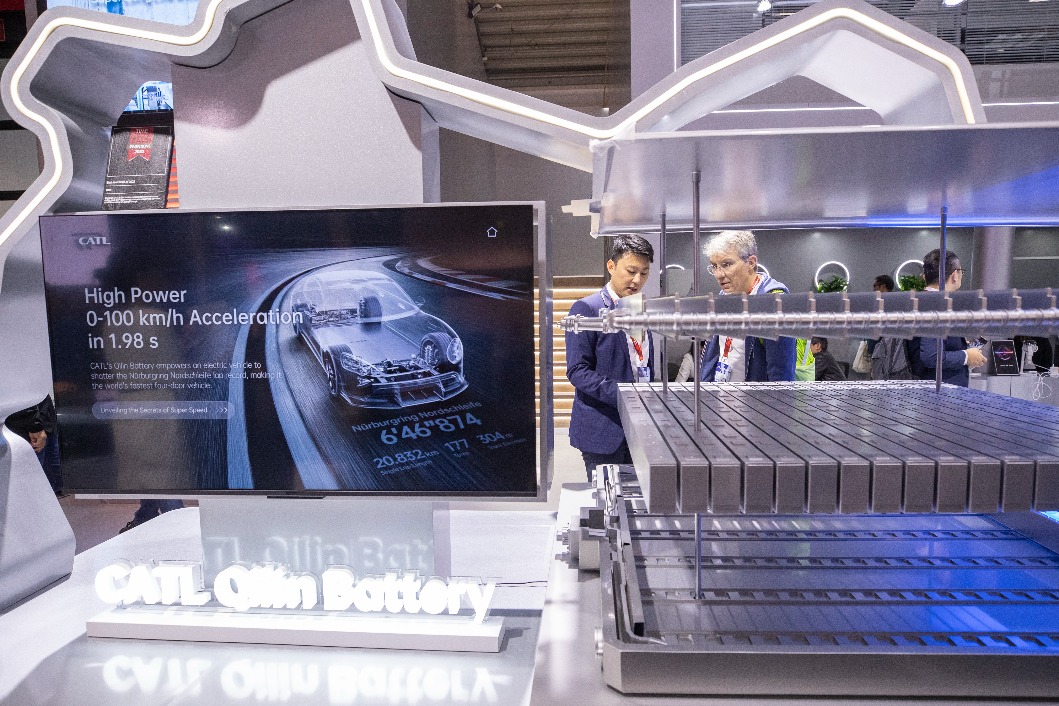Journey to the West is steady but arduous

The trend of Chinese electric appliance producers going global is becoming all the more irresistible.
Having cemented a lion's share in the domestic market and spearheading emerging markets such as Africa and Southeast Asia, China's major appliance giants are beefing up efforts to increase their presence in a new and well-established marketplace - Western nations.
Haier has entered the elite club in Europe with sales of electrical products such as TVs and washing machines.
|

|
Air conditioner maker Gree is also planning to set up factories in the US this year.
But their journey to the West has not gone as smooth as their expansions in emerging markets. Haier has managed to establish a reputation in certain European markets, but others have failed to make their brands well-known or ring up big sales.
That is because US and European markets are so different from the Chinese market or any other emerging market, and hence Chinese firms cannot duplicate their success.
Simply put, they have to understand the Western markets from the start and advance their businesses in these markets bit by bit.
One of the biggest differences is that Western consumers are far more brand-conscious and less price-sensitive.
A survey of about 600 consumers in China and the US, conducted by Universal Consultancy from January to March in 2010, showed that US consumers have a much higher brand loyalty when they buy household electric appliances.
Of those polled in the US, 91 percent said they regarded brand as one of the most important factors when they purchase a major appliance. The percentage was 42 percent in China. Most Chinese, or 73 percent, cited brand as the second or third most important. The most important determinant for Chinese consumers, according to the survey, is price.
A similar survey about the European Union market is under way and preliminary results reflect a similar trend.
What Chinese major appliance giants see as a growth opportunity - price advantage - simply won't work in Western markets.
But that is not necessarily bad for China, because, in the long run, price advantage will by no means be the trump card for made-in-China items in developed markets.
According to a study released by the Boston Consulting Group in May titled The Return of US Manufacturing, China's rising manufacturing costs will significantly erode savings for US exports in the next five years, and reinvestment in the US will accelerate as it will become one of the cheapest locations for manufacturing in the developed world.
Compared with China's productivity-adjusted wage rates, today, the US rates will 66 percent less by 2015, the study estimated, concluding that China will no longer be the default low-cost manufacturing location for supplying the US market.
To embrace that trend, it is time for Chinese companies to forget their price advantage and put more emphasis on branding and services.
First, they must have a better understanding of how household electrical products are sold in the West.
Western markets are usually retailer-oriented, with salespeople, who are hired by retailers, serving customers. It is retailers that manage the store layout and promote products. Under this sales model, major appliance manufacturers are simply suppliers to retailers.
In China, however, retailers lease space to manufacturers. It is sales promoters hired by manufacturers that promote and sell products to customers. Retailers make money from rentals and commissions. Under this model, major appliance manufacturers play the roles of both producers and sellers and they have more control of their products.
Because of this difference, Chinese producers should not expect they can copy the Chinese model in Western markets. They must play in accordance with market practices and should not expect to enjoy the high autonomy in running their counters at the stores.
The lack of understanding of local business practices caused Chinese appliance makers to end their initial attempt to enter Western shops about 10 years ago. It is after they started to respect the foreign model a few years later that their products entered foreign department stores and supermarkets.
But that does not mean Chinese should let foreign retailers have the upper hand. Instead, they can negotiate with foreign retailers and distributors over how their products are displayed in the stores to make sure their products are well-promoted.
Second, it is highly recommended that Chinese appliance manufacturers open self-run flagship stores at prime shopping districts instead of local Chinatowns, despite the high costs and possible initial losses.
That is the best way to advertise their products, and of course, a self-run store enables the manufacturers to display and promote their products at their will.
But, of course, they must make sure that they have strong financial strength and enough patience.
Third, after-sale services are crucial. Westerners are willing to pay extra for services. Because of this, manufacturers must make sure their service points are widespread to support their sales. If they are not able to run all the service shops from their own resources, they may outsource the jobs to reliable service providers.
Despite difficulties, the trend of Chinese major appliance powerhouses expanding in Western markets will continue in tandem with the overseas expansion of Chinese retailers.
Major Chinese appliance retailers, such as Suning and Gome, plan to enter Western markets after succeeding in places such as Hong Kong; Chinese appliance makers will, of course, benefit from that trend.
And it is likely that Chinese retailers and manufacturers could transfer the Chinese model to Western markets after proving themselves.
The author is an analyst specializing in fast-consuming and retail sectors at Shanghai-based Universal Consultancy.
Today's Top News
- Reunification will only make Taiwan better
- Outline of Xi's thought on strengthening military published
- Targeted action plan to unleash consumption momentum
- Separatist plans of Lai slammed
- Sinologists help to bridge civilizations
- HK unveils sweeping steps after huge blaze






























